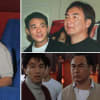Universities should not decide on LGBTQ speakers, performers based on ‘personal views’: Indranee Rajah
SINGAPORE — Institutes of higher learning have the autonomy to manage their own campus activities, such as deciding which artists, speakers and performers to invite, including those who may identity with lesbian, gay, bisexual, transgender and queer (LGBTQ) causes, Second Minister for Education Indranee Rajah said.

Second Minister for Education Indranee Rajah (pictured) said that "personal views" should not determine whether LGBTQ speakers, performers or artists are invited to institutes of higher learning.

Quiz of the week
How well do you know the news? Test your knowledge.
\SINGAPORE — Institutes of higher learning have the autonomy to manage their own campus activities, such as deciding which artists, speakers and performers to invite, including those who may identity with lesbian, gay, bisexual, transgender and queer (LGBTQ) causes, Second Minister for Education Indranee Rajah said.
However, these institutes need to be respectful of Singapore’s wider social norms and laws, and exercise appropriate judgement and sensitivity when dealing with potentially socially divisive issues, she told Parliament on Tuesday (Nov 5).
These decisions on LGBTQ performers should not be made based on personal views, as different people may have very different personal views, she added.
Ms Indranee was responding to a supplementary question by Nominated Member of Parliament Walter Theseira, who asked the Ministry of Education to confirm whether decisions to allow LGBTQ individuals to perform or speak at school campuses should be based on established policies or personal views.
His question was tied to two individuals who withdrew their engagements with two institutes of higher learning after they were told to remove LGBTQ content.
In September, bisexual singer Leon Markcus pulled out from a concert that was to take place at SIM Global Education, after he was allegedly told to change his performance in a way that did not promote the LGBTQ community.
In July, disc jockey Joshua Simon decided not to speak at a TED Talks session held at Singapore Polytechnic after he was told by the school to edit out a portion of his script that contained LGBTQ content.
“Such decisions should not be made on personal views,” Ms Indranee said. Institutes of higher learning provide a public space which is attended by people of “many different views… many different persuasions, whether it's race, religion or sexual orientation”.
The schools need to ensure that these spaces, where potentially socially divisive issues are discussed, are safe for its audiences.
“The key thing is to work within the parameters I have outlined, which is that they have to be respectful of our social norms and laws, and they do have to exercise appropriate judgement and sensitivity.”
This means that there is an element of discretion that schools will have to exercise when making these decisions.
But “that element discretion should not be decided based just on your own personal belief”, she repeated.
Instead, institutes of higher learning should seek to make their decisions based on what is comfortable for their audience.
“Some audiences may well be able to be much more accommodating, others may feel a little uncomfortable. Institutions will have to take that call,” she said.
















